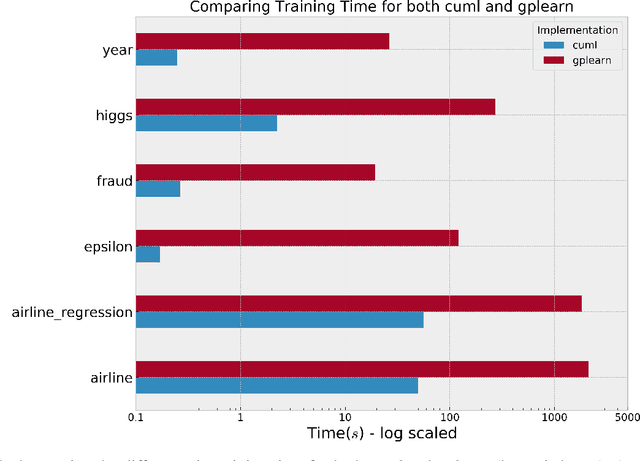Shankara Rao Thejaswi Nanditale
NVIDIA Corporation
Accelerating Genetic Programming using GPUs
Oct 15, 2021



Abstract:Genetic Programming (GP), an evolutionary learning technique, has multiple applications in machine learning such as curve fitting, data modelling, feature selection, classification etc. GP has several inherent parallel steps, making it an ideal candidate for GPU based parallelization. This paper describes a GPU accelerated stack-based variant of the generational GP algorithm which can be used for symbolic regression and binary classification. The selection and evaluation steps of the generational GP algorithm are parallelized using CUDA. We introduce representing candidate solution expressions as prefix lists, which enables evaluation using a fixed-length stack in GPU memory. CUDA based matrix vector operations are also used for computation of the fitness of population programs. We evaluate our algorithm on synthetic datasets for the Pagie Polynomial (ranging in size from $4096$ to $16$ million points), profiling training times of our algorithm with other standard symbolic regression libraries viz. gplearn, TensorGP and KarooGP. In addition, using $6$ large-scale regression and classification datasets usually used for comparing gradient boosting algorithms, we run performance benchmarks on our algorithm and gplearn, profiling the training time, test accuracy, and loss. On an NVIDIA DGX-A100 GPU, our algorithm outperforms all the previously listed frameworks, and in particular, achieves average speedups of $119\times$ and $40\times$ against gplearn on the synthetic and large scale datasets respectively.
 Add to Chrome
Add to Chrome Add to Firefox
Add to Firefox Add to Edge
Add to Edge